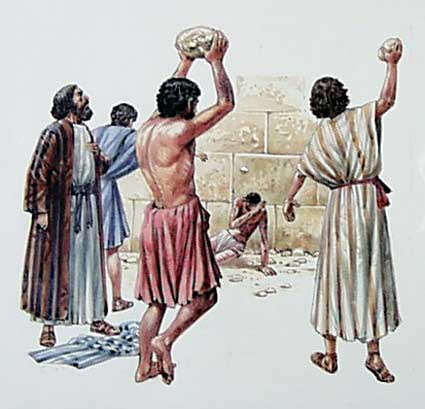
Qualifications For A Deacon
The Word of God is very clear concerning the qualifications and requirements for a deacon. In this section I will cover the list of qualifications that Paul gave for deacons in I Timothy chapter three. In covering these qualifications, I will give the reader several translations to compare.
Before an individual is set apart for the work of a deacon, it is important that, there be a time of proving. I Timothy 3:10 says “But let these also first be proved,” referring to deacons. The word “proved” is the Greek word dokimazo. which means, “to try, prove, discern, distinguish, approve.” It has the notion of proving a thing whether it be worthy to be received or not.” The Weymouth translation renders it “probation.” This is clearly what Paul had in mind. Putting someone in a position before they are ready can be harmful to both the flock and the individual.
The Word is silent as to how long this proving or probation time should be. However, wisdom and experience teach that perhaps is should be at least six months to a year after they meet the qualifications. Not six months to a year to meet the qualifications, but a proving time afterward to see if they are genuine. This time-frame will vary, but not greatly. It may take longer than a year with those who have moral and character deficiencies in their background, though it shouldn’t be less than six months, even with the best of candidates.
The deacon qualifications of I Timothy 3:8-13 fall into three categories:
- Character
- Domestic
- Spiritual
There are also deacon qualifications listed in Acts chapter six which will be incorporated into these three categories. Some of the qualifications are the exact same ones for elders.
I. Character Qualifications
1. A deacon is not to be double-tongued (I Tim. 3:8). A deacon, at times, will be privy to personal information concerning members; he cannot be given to gossip. Being double-tongued means to say one thing to someone, and something different to someone else. A deacon must have his tongue under control (James 3:1-8). Other translations render this word as follows: “not shifty and double talkers but sincere in what they say”- Amplified Bible; “not false in word” – N.T. in Basic English; “straightforward men” – N. T. American Translation.
2. A deacon is not to be given to wine (I Tim. 3:8). This would include any form of intoxication. Wine was a common drink in Bible days; some was fermented, some unfermented. The fermented was less than 2% alcohol, it would have taken lots of it to get drunk. However, an elder was still not to be given to it. The literal translation says “not tarrying at or staying near wine.”
3. A deacon is not to be greedy for money (I Tim. 3:8). Money should never be the motivation for life’s decisions. The love of money is a root of all sorts of evil (I Tim.6:10). The Greek word for “greedy for money” (aischkrokerde) means “not desirous of base gain; not using wrong methods to raise money to increase one’s own income.”
4. A deacon is to be blameless (I Tim. 3:10). A deacon’s life is to be above reproach in all areas of life. A deacon is to be a godly example to the flock. The Greek word for “blameless” (anegkletos) means “to be unaccused.” Other translations include: “if no objection is raised against them ” – Twentieth Century N.T.; “if they are found irreproachable “- Conybeare; “if there is no. fault to be found with them” – N.T. American Translation; “if they are of unblemished character” – Weymouth
5. A deacon is to be proven (I Tim. 3:10). The Greek word means “to be tested, examined and scrutinized to see whether a thing is genuine or not. It has the notion of proving a thing whether it be worthy to be received or not.” The Weymouth translation renders it “probation.” No deacon should be installed without a time of proving, regardless of educational or business background, and finances are of no consideration!
6. A deacon is to be of a good reputation (Acts 6:3). A deacon must have an excellent testimony and reputation with unbelievers and believers alike in the community. This includes areas of financial obligations; business dealings, community relations, legal matters, taxes, etc.. In secular employment, it is important for a deacon to have the respect of his co-workers; he should not be slothful or critical of supervisors. A deacon is an example outside of the church as well as within. A deacon should also have a good report among the brethren. He should not have a history of leaving churches over differences with the leadership. If this occurs it should be an exception, not a pattern.
Next, we will look at domestic and spiritual qualification.


